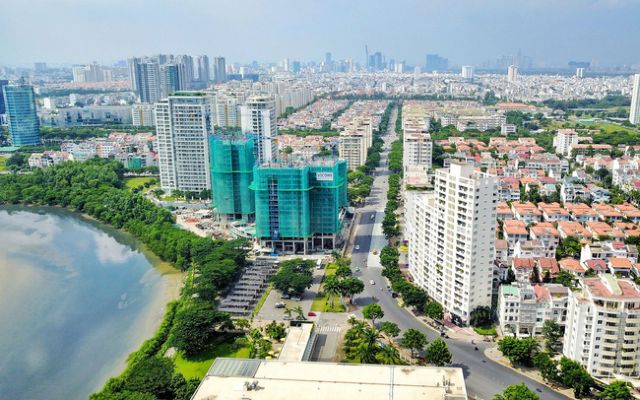The Prime Minister has asked the Ministry of Construction (MOC) and relevant ministries to complete the legal system regarding the local property market to ensure sustainable development.

The Prime Minister has asked the Ministry of Construction (MoC) and relevant ministries to complete the legal system regarding the local property market to ensure sustainable development, according to the Prime Minister’s direction issued on April 23.
According to the Directive No 11/CT-TTg on solutions promoting stable and healthy development of the real estate market, the MoC needs to complete adjustments and supplements to the Construction Law, the Housing Law and the Real Estate Business Law in the third quarter of this year. Those include amendments and supplements to construction standards for condominiums, condotels, resort villas, officetels and rooms for rent.
The ministry is asked to complete and issue in the third quarter regulations on management and operation of officetels.
It must coordinate with other ministries, branches and localities to strengthen inspections and require investors of projects developing urban areas and apartments to ensure synchronous building of all infrastructure, including technical infrastructure, social infrastructure and fire protection systems in the projects. In addition, the investors must also connect the projects’ infrastructure works with the infrastructure systems of the regions before handing over property products to customers in accordance with the law on construction, law on housing and relevant laws.
Moreover, the MoC would continue following the development of the local property market to report to the Government and the Prime Minister when needed, aiming to develop measures on stabilising the market when there are big fluctuations.
Meanwhile, the Ministry of Natural Resources and Environment (M0NRE) issues in the third quarter of this year specific guidelines on issues relating to land use rights for condotels, resort villa and officetels in accordance with existing regulations.
The ministry will strengthen comprehensive inspection of implementing planning, land use plans, land allocation, land lease and issuance of certificates on land use rights, house ownership and other landed assets.
It will also monitor management and land use in industrial zones and industrial complexes, projects developing urban, residential and resorts and projects having signs of violation in land use and management.
The Prime Minister has assigned the Ministry of Finance (MoF) to complete in the third quarter of this year proposals on amendment, supplement and issuance of regulations for using all resources, especially land, in development and anti-speculation on the real estate market.
The MoF will work with relevant ministries and sectors to study some financial institutions, such as housing savings fund, real estate investment funds and real estate trust funds, to mobilise financial sources for the real estate market and to gradually reduce dependence on capital from credit institutions.
The State Bank of Viet Nam continues to have flexible monetary policies and to control credit scale in accordance with macroeconomic developments as well as credit for the real estate business sector. Credit institutions are encouraged to give capital to projects developing social houses, low-price commercial houses and rental houses.
To avoid a real estate bubble, the Prime Minister has required the people's committees of centrally-run cities and provinces to strictly implement laws and regulations relating to the real estate market and follow development of the property market for measures on stabilising the market and preventing the market from price fevers and bubbles.
At the same time, they must complete amendments of planning in the third quarter to have land fund for social housing development in urban planning, industrial zone planning and land use plans, ensuring adequate land funds for social housing development.
They will approve planning of new urban areas, new industrial parks and education facilities when the planning must have land for social houses, workers' houses, student houses and functional areas for education, health, culture and sports services.
These cities and provinces also arrange investment to essential infrastructure in and out of social housing projects, especially in areas with large numbers of workers.
The State will withdraw investment licences from property projects that are not implemented, especially luxury housing projects. — VNS





